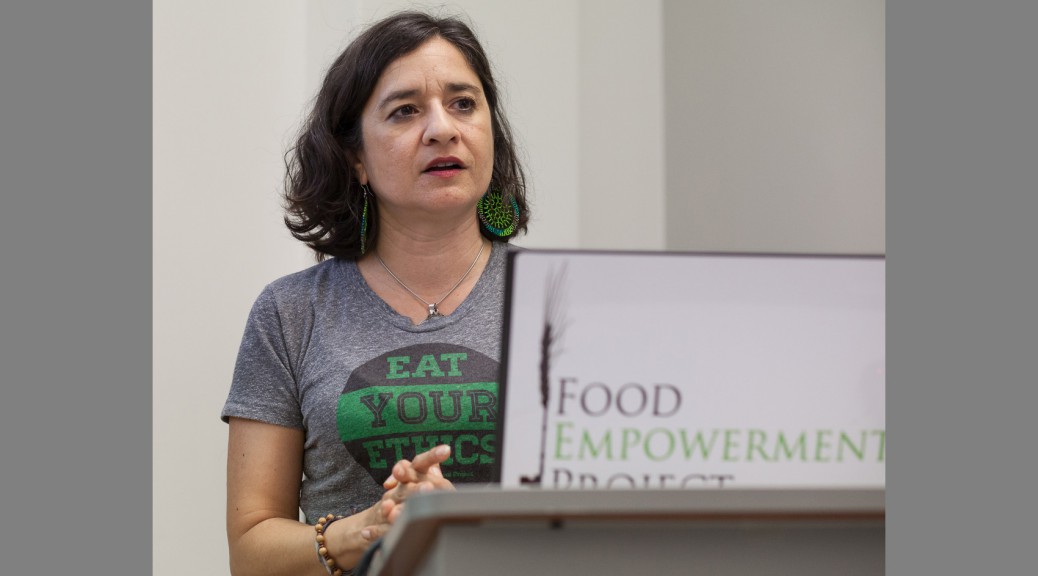[Image: Gandalf, a goat at Preetirang Sanctuary.]
Disclaimer/reminder: I am registered with no political party and do not support or endorse any presidential candidates.
I’ve tried to stay out of political discussions, but recent social media posts about Democratic presidential candidates and their support for animals, or lack thereof, has irritated me enough to say something.
Let’s face it. No Democratic or Republican presidential candidate is ever going to campaign for animal liberation. The best you can expect is maybe some promises of welfare reform or promotion of plant-based diets. But recognizing legal personhood and abolishing the property status of animals? Forget it.
The two major U.S. parties are not identical, but they are similar in one fundamental respect: Money. In our capitalist system, there is simply too much profit to be made by exploiting people to achieve true justice and equity for humans, much less our fellow animals. I am convinced that the only way to make radical changes is to dismantle the system and rebuild it from the ground up.
Note that I’ve been voting since 1988, when I was first eligible to do so, so I’ve heard every argument against “third parties” in the book. Don’t bother telling me that “A vote for x is a vote from Trump” or “Not voting is a vote for Trump” or anything else that implies I am personally responsible for rescuing this country from the fucked up state it is in. (See yesterday’s post by A. Breeze Harper for some insight on how that might have happened.) Besides, I’m not convinced that any political party is able to accomplish the kind of radical change that would make me feel safe, welcome, and happy to call myself a US-American.
For the record, though, there is a political party that is campaigning on a platform of animal rights (among other reforms): The Humane Party. They actually require all of their candidates and officers to sign an oath abstaining from all animal products and services. Their presidential candidate (who again, I am not endorsing) is Clifton Roberts.
Of course, I’m sure none of the animal rights groups are bothering to mention this party’s existence because it’s such a long shot that they would win. But you know what else is a long shot? Animal liberation. Only a tiny proportion of people in this country actually recognize farmed animals as individual sentient beings who deserve to live for their own sake. Citing polls that say things like “32% of people believe animals should be given the same rights as people” is frankly disingenuous, because if that were really true we’d see far more widespread acceptance – and even enforcement – of veganism than we currently do. Such respondents might have actually believed what they were saying, but I guarantee the majority of them poured cow’s milk on their cereal before putting on their leather shoes and going to work.
So if animal rights activists truly want animal liberation, why aren’t more of them campaigning for candidates who actually support it? Or, better yet, organizing for (peaceful) revolution? I know why I’m not doing it: Serious depression and dysphoria that have made it difficult for me to even take care of myself, much less get involved in radical political reform. But there are a lot of energetic vegan activists out there.
Regardless, US-American politics is rearranging deck chairs on the Titanic at this point. I’m not saying any other particular country is better on animal rights specifically; animals are exploited – just by nature of them being considered property – pretty much everywhere. And as a queer black trans person with mental health issues, even if I had the independence and ability to just pick up and move, I honestly don’t know where I would go.
To reiterate: This is not an endorsement of Clifton Roberts or any other candidate. I am just fed up with two-party politics, and the expectation that as a progressive I have a duty to play along.


